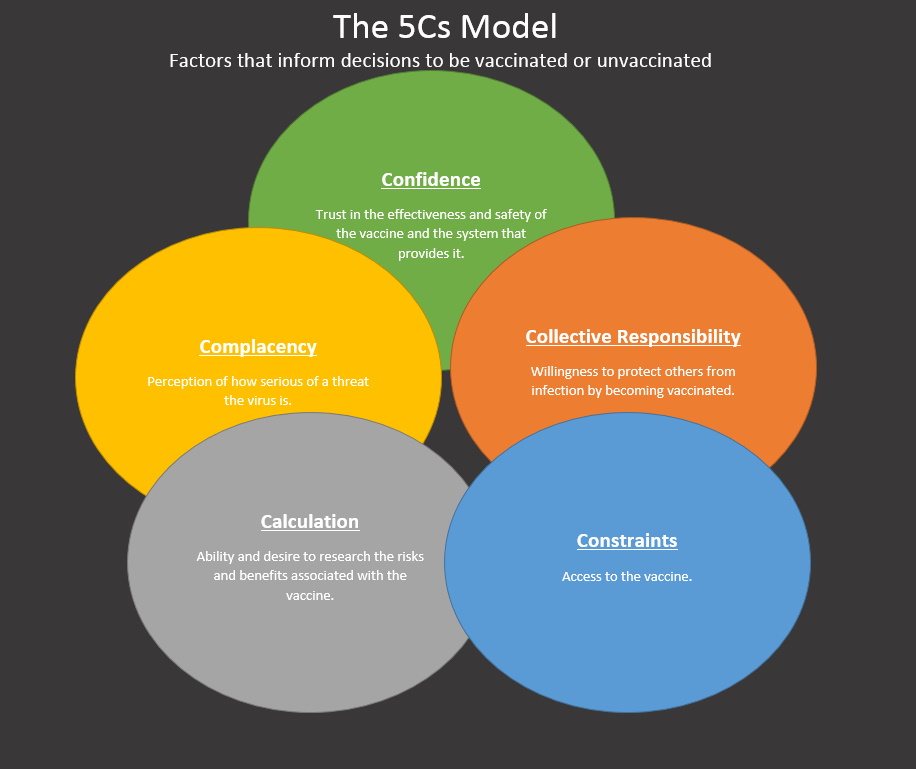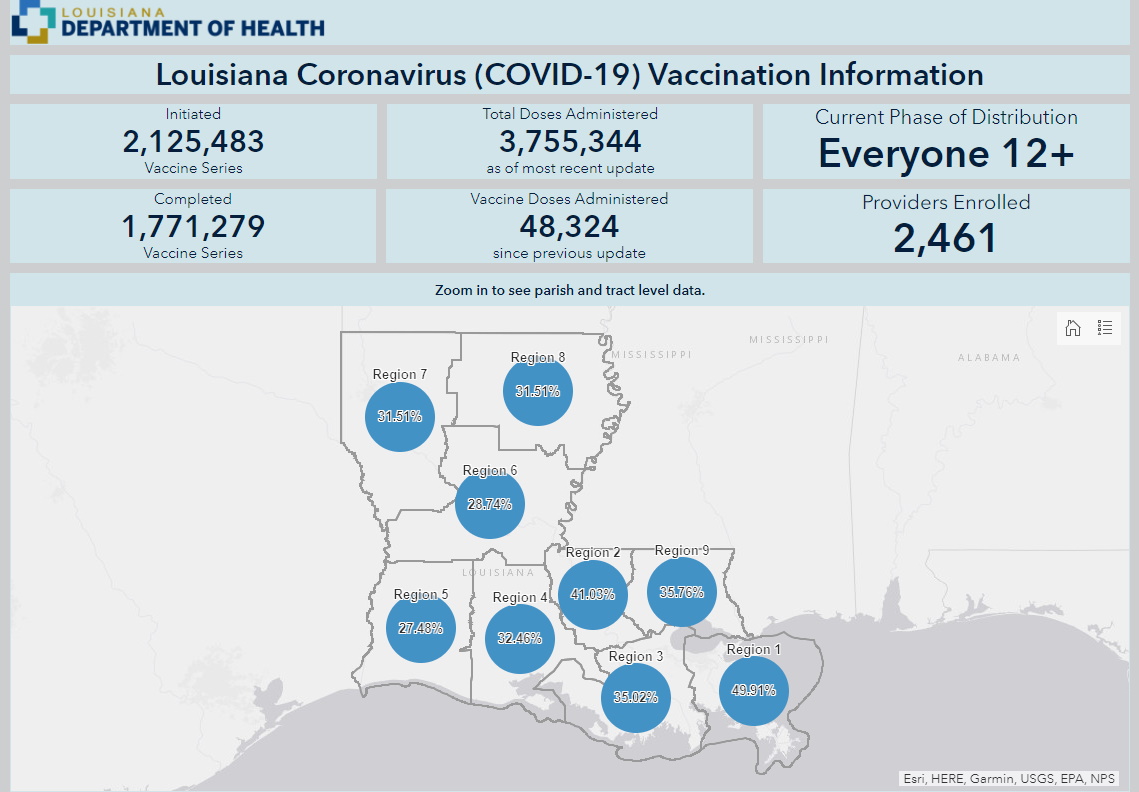Psychologists suggest a more informative approach to addressing vaccine hesitancy
BATON ROUGE - Approximately 1,771,279 people in Louisiana are fully vaccinated against COVID-19, which is about 37 percent of the state's population.
While this indicates progress in the fight to ward off the deadly effects of COVID-19, health officials say Louisiana still has a long way to go.
According to the Louisiana Department of health, COVID has become the top cause of death in the U.S., and vaccines are a critical tool in protecting individuals, families, and communities from contracting the virus.
Simply put, the majority of medical experts agree that more people need to be vaccinated.
If this is the message leading scientists and medical experts have been repeating for months, why does nearly 63 percent of Louisiana's population remain unvaccinated?
Why some are hesitant to be vaccinated
Trending News
Psychologists who specialize in medical decision-making say those who make the choice to remain unvaccinated do so for a variety of reasons that should be addressed with respect and sensitivity.
One theory as to why a large percentage of a population often remains hesitant to be vaccinated is called "The 5Cs Model.'
According to this theory, the psychological foundations of the five major reasons why people either choose to be vaccinated or avoid vaccination often fall into the following general categories:
Confidence: A person's trust in the vaccine's efficacy and safety, trust in the health services that provide the vaccines, and in the lawmakers who oversee the rollout of the vaccines.
Complacency: A person's perception of how serious of a threat the virus poses.
Calculation: A person's ability and desire to research the risks and benefits associated with the vaccine and with their decision to either take it or not take it.
Constraints (or convenience): Accessibility to the vaccine.
Collective responsibility: Willingness to protect others from infection by becoming vaccinated.

According to The 5Cs Model, contributing factors to vaccine hesitancy may include lack of trust in the vaccine's safety and effectiveness, belief that the health crisis is not as bad as some say it is, lack of information related to the risks and benefits of getting the shot, and very limited or lack of access to vaccines.
These reasons, coupled a natural human tendency to focus on negative news can contribute to the decision not to be vaccinated.
A recent report from BBC News cited Dr. Jessica Saleska of the University of California in addressing this aspect of vaccine hesitancy.
Saleska pointed out that many people have a tendency towards two mindsets, 'negativity bias' and 'optimism bias.'
Negativity bias motivates a person to dwell on negative information.
For example, a tragic account of someone reacting poorly to one of the COVID vaccinations may stick in the mind. For many people, this one report will supersede the hundreds of other successful vaccinations they've read about because negative accounts tend to stick in our minds.
Optimism bias often leads us to place unfounded confidence in our potential for success in arenas where most people do not find success.
For example, a person who lives in a community where a large percentage of the population has succumbed to COVID-19 may feel they are somehow less likely to be infected by the virus, even if they choose to remain unvaccinated.
So, a person who has both negativity bias and optimism bias may lean towards not being vaccinated because they fear having a poor reaction to the vaccine and they also believe that, for one reason or another, they will not be infected by COVID-19.
Experts add that other factors, not specifically mentioned in The 5Cs Model, play a major role in vaccine hesitancy.
One of these is a fear of needles, and another is mistrust of medical authorities due to multi-generational or personal experiences of structural racism and/or prejudice.
Addressing vaccine hesitancy
Some psychologists say lack of trust in the COVID-19 vaccines seems to be a major issue, and they suggest government officials address this by providing people with more specific information about the vaccines.
For example, Dr. Mohammad Razai of the Population Health Research Institute, St George's, University of London says officials would do well to offer people more education about the history of the vaccines' development.
Razai points out that the use of mRNA in vaccines has been studied for decades, with long trials testing its safety.
"None of the technology that has been used would be in any way harmful because we have used these technologies in other areas in healthcare and research," Razai said.
What's in each COVID vaccine?
A number of U.S. citizens are interested in a breakdown of the ingredients in each vaccine, as well as more information on how they work, and how experts were able to determine the effectiveness of each vaccine.
The Centers for Disease Control and Prevention (CDC) provides a breakdown of each vaccine's ingredients.
A brief breakdown is also found below:
-Pfizer Vaccine: The full list of ingredients for the Pfizer vaccine is:
mRNA, lipids ((4-hydroxybutyl)azanediyl)bis(hexane-6,1-diyl)bis(2-hexyldecanoate), 2
[(polyethylene glycol)-2000]-N,N-ditetradecylacetamide, 1,2-Distearoyl-sn-glycero-3-
phosphocholine, and cholesterol), potassium chloride, monobasic potassium
phosphate, sodium chloride, dibasic sodium phosphate dihydrate, and sucrose.
*The Pfizer vaccine does not contain eggs, preservatives, or latex.
-Moderna Vaccine: The full list of ingredients for the Moderna vaccine is:
Messenger ribonucleic acid (mRNA), lipids (SM-102, polyethylene glycol [PEG] 2000
dimyristoyl glycerol [DMG], cholesterol, and 1,2-distearoyl-sn-glycero-3-phosphocholine [DSPC]),
tromethamine,tromethamine hydrochloride, acetic acid, sodium acetate trihydrate, and sucrose.
*The Moderna vaccine does not contain eggs, preservatives, or latex.
-Johnson & Johnson Vaccine: The full list of ingredients for the Johnson & Johnson vaccine is:
Recombinant, replication-incompetent adenovirus type 26 expressing the SARS-CoV-2 spike protein,
citric acid monohydrate, trisodium citrate dihydrate, ethanol, 2 hydroxypropyl-β-cyclodextrin (HBCD),
polysorbate-80, sodium chloride.
*The Johnson & Johnson vaccine does not contain eggs, preservatives, or latex.
Additional vaccine information from the CDC
The CDC also provides information that explains how scientists determined the safety and efficacy of each U.S.-approved COVID vaccine.
That information can be accessed here and here.
View this post on Instagram
While some eagerly pore over this information, others take a different approach to reaching a conclusion about the COVID-19 vaccinations.
For example, General Russel Honoré said he chose to be vaccinated for a few basic reasons.
In speaking about his decision, Honoré said, "Look, if you eat boudin balls or hot dogs- and you trust that- you can take the shot."
During Hurricane Harvey many Texans were saved by members of the Cajun Navy. So maybe during a pandemic a few of y’all might be saved by the Cajun Army.
— HOUmanitarian (@HOUmanitarian) August 13, 2021
Louisiana’s own @ltgrusselhonore, hero of the Katrina response, wants y’all to “take the shot.” pic.twitter.com/VzH0E2rHIv
.@ltgrusselhonore: “Look, if you eat boudin balls or hot dogs — and you trust that — you can trust the shot.” https://t.co/4KQSzKDuiY
— Harrison Golden (@HarrisonWDSU) August 12, 2021
Though the decision to be vaccinated against COVID-19 remains a personal choice, the CDC continues to recommend getting the shot to protect one's self, family, and community.



